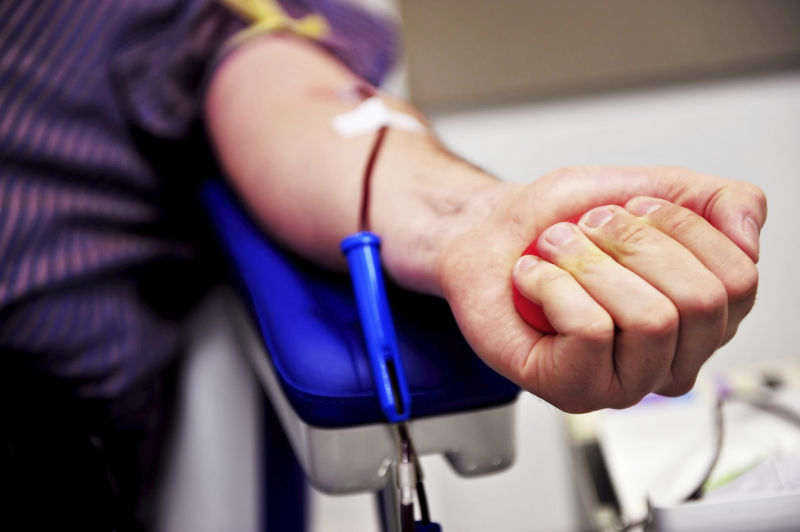But gay rights activists say the change doesn't go far enough.
"It continues to stigmatize gay and bisexual men," David Stacy, of the Human Rights Campaign, told ABC News. "It simply cannot be justified in light of current scientific research and updated blood screening technology."
The National Gay Blood Drive said the change "was a huge first step in the right direction," but also called on the FDA to move toward a non-discriminatory policy and end discrimination based on sexual orientation.
Under the recommendations approved today, the FDA says the following donors should not be permitted to donate blood "indefinitely":
- An individual who has ever had a positive test for HIV.
- An individual who has ever exchanged sex for money or drugs.
- An individual who has ever engaged in injection drug use that was not prescribed.
And these people should be deferred:
- Defer for 12 months from the most recent contact any individual who has a history of sex with a person who: has ever had a positive test for HIV, ever exchanged sex for money or drugs, or ever engaged in non-prescription injection drug use.
- Defer for 12 months from the most recent transfusion any individual who has a history of receiving a transfusion of Whole Blood or blood components donated by another person (allogeneic transfusion).
- Defer for 12 months from the most recent exposure any individual who has a history of through-the-skin contact with the blood of another individual, such as a needle stick or blood contact with an open wound or mucous membrane.
- Defer for 12 months from the most recent tattoo, ear or body piercing. However, individuals who have undergone tattooing within 12 months of donation are eligible to donate if the tattoo was applied by a state regulated entity with sterile needles and non-reused ink. Individuals who have undergone ear or body piercing within 12 months of donation are eligible to donate if the piercing was done using single-use equipment.
- Defer for 12 months after completion of treatment any individual with a history of syphilis or gonorrhea or with a history of diagnosis or treatment for syphilis or gonorrhea in the past 12 months.
- Defer for 12 months from the most recent contact a man who has had sex with another man during the past 12 months.
- Defer for 12 months from the most recent contact a female who has had sex during the past 12 months with a man who has had sex with another man in the past 12 months.
The policy also addressed transgender donors, saying "male or female gender should be self-identified and self-reported."
This does little to clarify "a policy that some blood banks have interpreted as a ban on all transgender donors," reports BuzzFeed News and continued:
One national blood donation company — facing two discrimination lawsuits from transgender women who were allegedly turned away — has argued in court records that previous FDA policy banned all transgender women. It is unclear that donors self-reporting their gender, as specified by the new guidance, clarifies that issue.
The FDA did not immediately reply to questions Monday from BuzzFeed News about whether all transgender people are banned from donating blood under the new guidelines.
All U.S. blood donations are screened for HIV, the virus that causes AIDS. But there is a roughly 10-day window between initial infection and when the virus can be detected in the bloodstream. The American Red Cross estimates the risk of getting an HIV-positive blood donation is 1 in 1.5 million for U.S. patients. About 15.7 million blood donations are collected in the U.S. each year.
In 2006 the Red Cross, the American Association of Blood Banks, and America's Blood Centers called the ban "medically and scientifically unwarranted."
The FDA concluded that moving to a one-year abstinence requirement would not change the safety of the U.S. blood supply, based on data from Australia and other sources.
On the current blood donor questionnaire, men are asked if they have ever had sex with another man since 1977 -- the start of the AIDS epidemic in the U.S. Potential donors who answer positively are barred from donating blood. The new questionnaire, as outlined by the FDA, would ask men if they have had sex with another man in the last 12 months.
This story includes reporting from the Associated Press.
